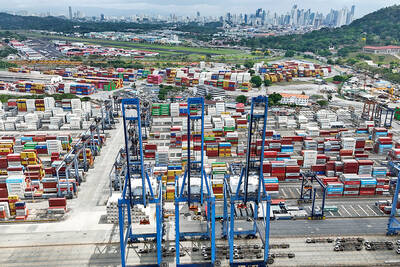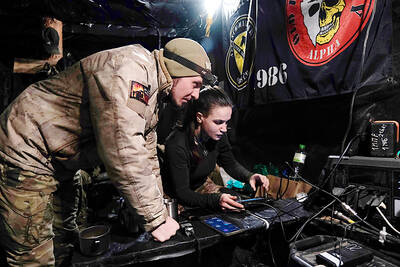Nations from India to Kazakhstan are far more dependent on melting glaciers for water than previously thought, particularly in summer droughts, scientists said on Wednesday, warning that rising temperatures were threatening supply.
Each summer, the 95,000 glaciers in the mountain region spanning from Kyrgyzstan’s Alai range to the Himalayas produce enough meltwater to support 221 million people, researchers at the British Antarctic Survey calculated.
That provides a crucial buffer against droughts, when rains fail and reserves are strained, according to the study which was published in the journal Nature.
However, such protection is under threat as ice caps shrink under rising global temperatures, threatening the region, said Hamish Pritchard, the study’s author.
“If we lose the glaciers, then we lose that protection from drought,” Pritchard said.
At least a third of the ice in the Himalayas and the Hindu Kush is to thaw by 2100, even if governments take tough action to limit global warming under the 2015 Paris climate agreement, a separate study found in February.
When drought hits, ice melt from those mountains — often referred to as the “third pole” — can account for up to 100 percent of the water in some of Asia’s main rivers, Pritchard said.
This water flow is expected to grow in the coming years as more of the ice melts, but would then start to decline toward the end of the century as the glaciers retreat — something that would exacerbate droughts, he said.
Droughts are already affecting people’s access to drinking water, food production and electricity generation across the region, said Luo Tianyi, senior manager for water risks at the World Resources Institute, a think tank.
“Water demand is also expected to grow significantly over the coming decades ... due to growing population, and food and energy demand,” Luo said. “If the demand is going up, but supply is going down, already stressed water resources is going to be even more scarce.”
The effects could be particularly severe in drought-prone regions with arid summers, such as the Aral basin in Central Asia, potentially forcing people to migrate or straining relations between nations that share a river, Pritchard said.
“As the climate crisis increases pressure on already scarce water supplies, the impacts will be felt most severely by those with least access to clean water, threatening their health and livelihoods,” said Jonathan Farr, policy analyst at the charity WaterAid. “It is the poorest communities who are paying the price for the world’s failure to act.”

THE TRAGEDY OF PUNCH: Footage of the seven-month-old Japanese macaque has gone viral online after he was rejected by his mother and formed a bond with a soft toy A baby monkey in Japan has captured hearts around the world after videos of him being bullied by other monkeys and rejected by his mother went viral last week. Punch, a Japanese macaque, was born in July last year at Ichikawa City Zoo. He has drawn international attention after zookeepers gave him a stuffed orangutan toy after he was abandoned by his mother. Without maternal guidance to help him integrate, Punch has turned to the toy for comfort. He has been filmed multiple times being dragged and chased by older Japanese macaques inside the enclosure. Early clips showed him wandering alone with

Australian Prime Minister Anthony Albanese yesterday said he did not take his security for granted, after he was evacuated from his residence for several hours following a bomb threat sent to a Chinese dance group. Albanese was evacuated from his Canberra residence late on Tuesday following the threat, and returned a few hours later after nothing suspicious was found. The bomb scare was among several e-mails threatening Albanese sent to a representative of Shen Yun, a classical Chinese dance troupe banned in China that is due to perform in Australia this month, a spokesperson for the group said in a statement. The e-mail

‘OCCUPATION’: Hong Kong said it had lodged ‘stern protests’ with Panama’s consulate, and would ‘staunchly support’ the rights and interests of Hong Kong companies Panamanian President Jose Raul Mulino on Monday ordered the temporary occupation of two ports run by a unit of CK Hutchison Holdings Ltd following the Supreme Court’s ruling against the firm’s concession, escalating a dispute that has become a proxy battle between the US and China in Latin America. Mulino said in a speech that the administration and operation of the two ports on the strategic Panama Canal is to revert to the country’s National Maritime Authority to ensure their uninterrupted, safe and efficient operation. The occupation covers movable equipment at the ports and does not mean a definitive loss of

GAME CHANGER The Russian invasion of Ukraine has shown the utility of small drones for recon, for supporting logistics and for killing across the modern battlefield Five European nations have announced a new program to produce low-cost air defense systems and autonomous drones using Ukrainian expertise, hard-won over the past four years fighting against Russia. Friday’s initiative of the five nations — France, Poland, Germany, the UK and Italy — comes as one of many European efforts to bolster defense along their borders, like a “drone wall ” with Russia and Ukraine to better detect, track and intercept drones violating Europe’s airspace. Both Moscow and Kyiv have cutting-edge drone warfare capabilities forged in the grim laboratory of war where battlefield innovations have rewritten modern battle tactics. Poland is